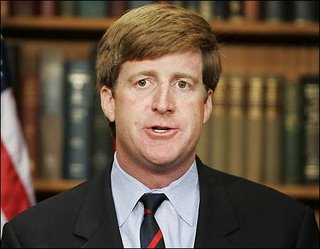Happy Centennial And A Half

(This article is adapted from Back to Basics for the Republican Party, Michael Zak's history of the GOP from the civil rights perspective. See www.republicanbasics.com for more information.)
Saturday is the 150th anniversary of the first Republican National Convention, which opened on June 17, 1856.
The Republican Party held its first national meeting in February 1856, in Pittsburgh, and established the RNC. Four months later came the first Republican National Convention – in Philadelphia, where the Constitution was written. No accident that it took place there. The message, true then and true today, is that the Republican Party is the defender of the United States Constitution.
Outraged that the Democratic Party had been violating the Constitution in order to advance its pro- slavery agenda, early Republicans were committed to preserving the legacy of the Founding Fathers. Seven of the nine planks in the 1856 Republican platform adopted by that first convention were resolutions in support of civil rights, along with two planks for pro-economic growth policies. The platform concluded with an affirmation that “the spirit of our institutions as well as the Constitution of our country, guarantees liberty of conscience and equality of rights among citizens.”
Though most of the 600 delegates were from the north, they chose a southerner as the Republican Party’s first presidential candidate. Born in Savannah, Georgia and raised in Charleston, South Carolina, John C. Fremont had won fame for exploring the Rocky Mountains and for helping to conquer California during the Mexican-American War. Fremont then served briefly as a U.S. Senator from California. It was he who christened the entrance to San Francisco Bay as “the Golden Gate.”
This military hero was also a dedicated abolitionist. Another enemy of slavery, Abraham Lincoln, came in second to Senator William Dayton for the vice presidential nomination. Six years later, Fremont would be one of the Union generals outmaneuvered by Stonewall Jackson in the Shenandoah Valley, while Dayton would serve as President Lincoln’s ambassador to France.
Here is what the first African-American Congressman, Joseph Rainey, a Republican and former slave from South Carolina had to say back in 1871: “We love freedom more, vastly more, than slavery; consequently we hope to keep clear of the Democrats!” The next year, Frederick Douglass proclaimed: “The Republican Party is the ship; all else is the sea.”
Remember, slavery was Democrat. The Confederacy was Democrat. The Reconstruction-era Ku Klux Klan was the terrorist wing of the Democratic Party. In contrast, the mission of all Republicans has always been to “preserve, protect, and defend the Constitution of the United States” – so help us God.





